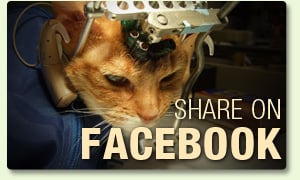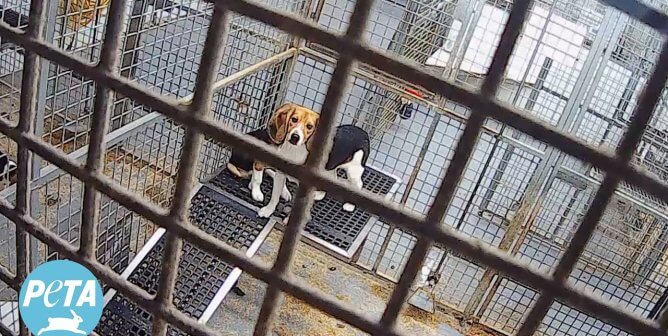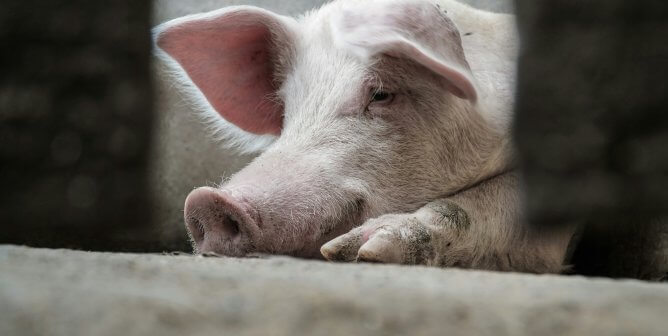UPDATE (January 23, 2015): Victory! Following a PETA campaign to expose and end cruel and archaic sound-localization experiments on cats at the University of Wisconsin–Madison, the embattled laboratory has closed its doors for good and released several cats. See PETA’s blog post for more details.
***
The University of Wisconsin–Madison fought for more than three years to keep these photographs of Double Trouble’s abuse a secret until a successful PETA lawsuit compelled the university to release the disturbing images. WARNING: The photographs that follow are graphic.
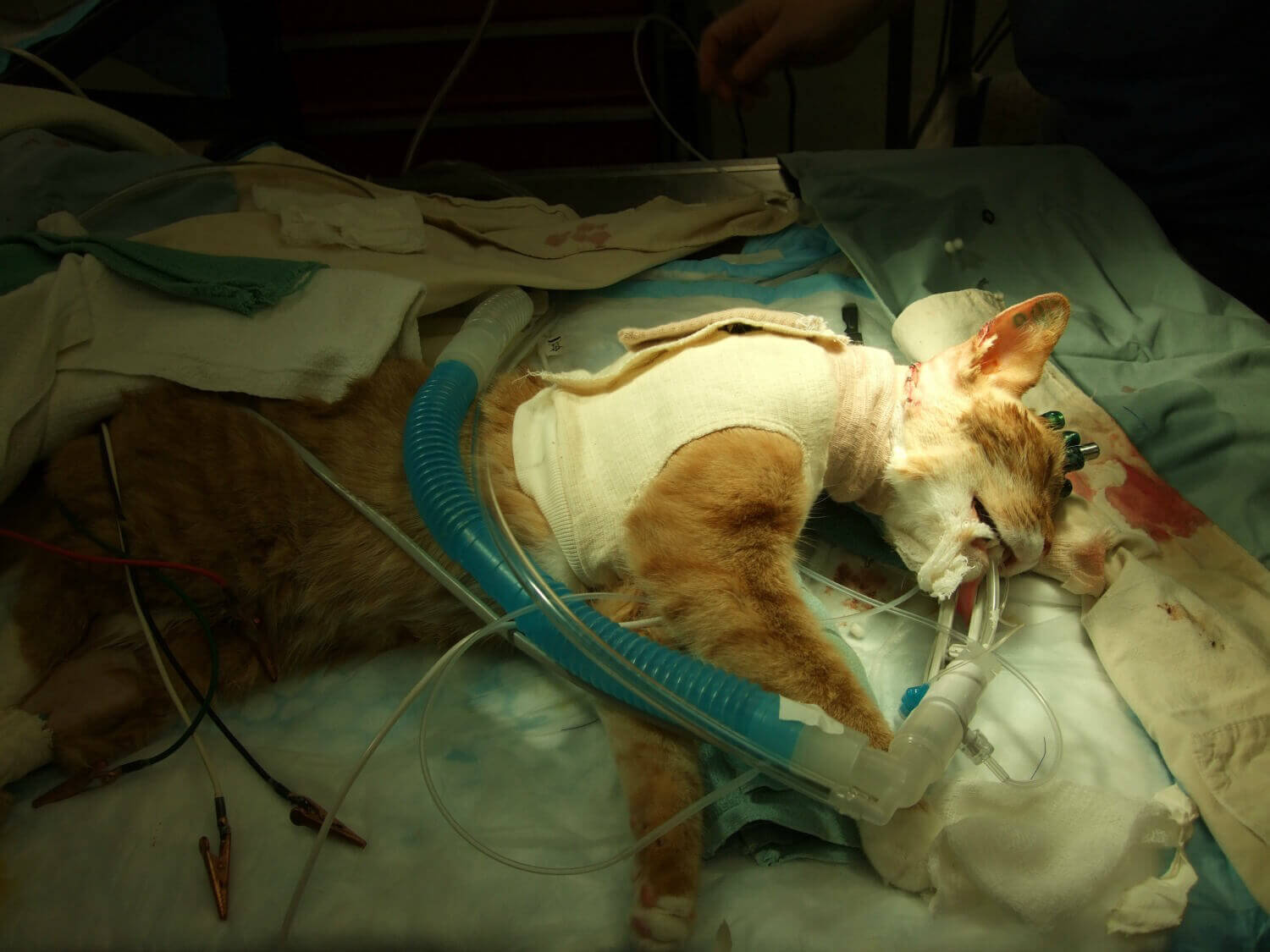 Double Trouble was subjected to several invasive surgeries on her eyes, ears, and brain.
Double Trouble was subjected to several invasive surgeries on her eyes, ears, and brain.
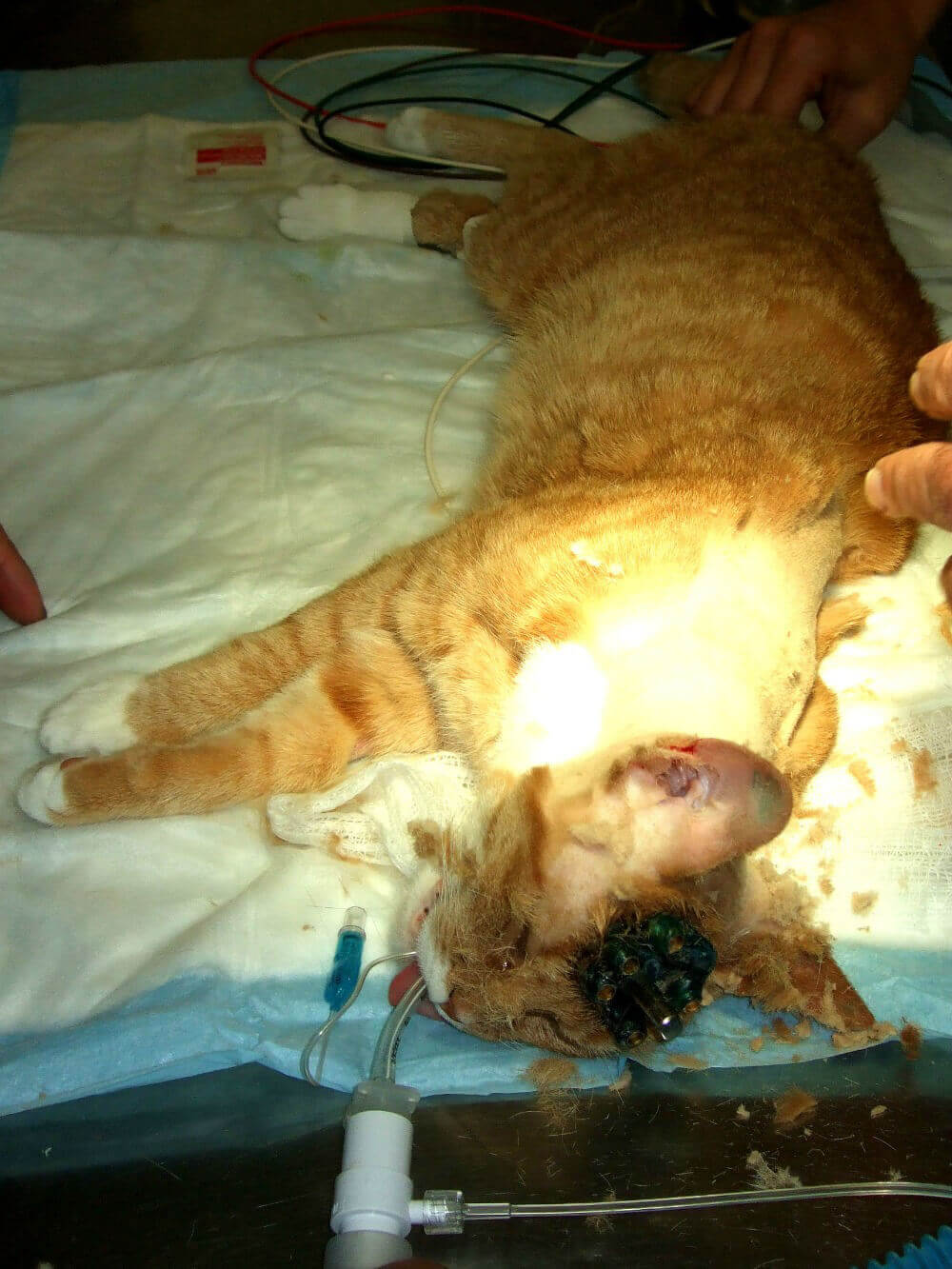
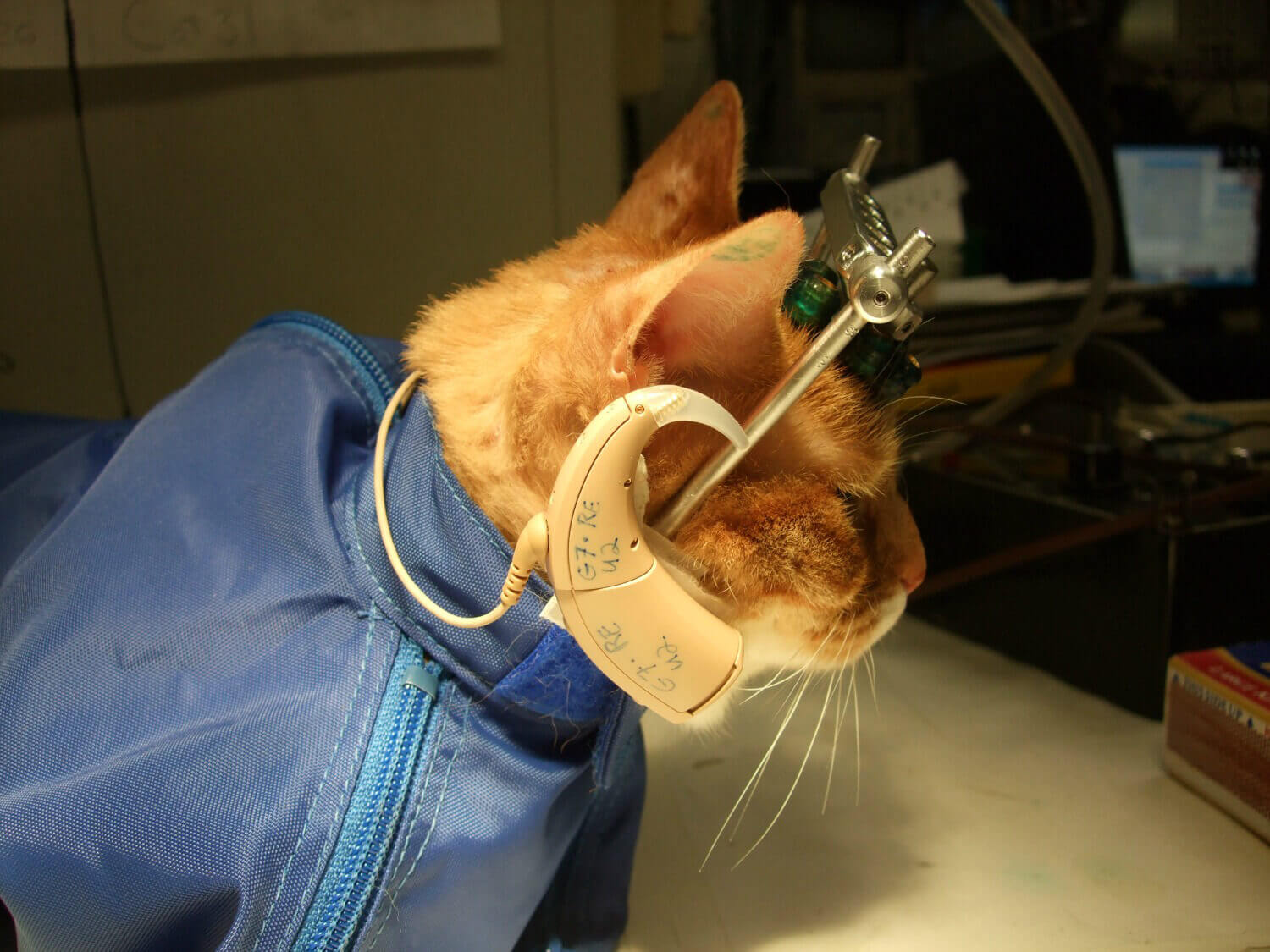 Experimenters drilled a hole in Double Trouble’s head and screwed this steel post to her skull.
Experimenters drilled a hole in Double Trouble’s head and screwed this steel post to her skull.
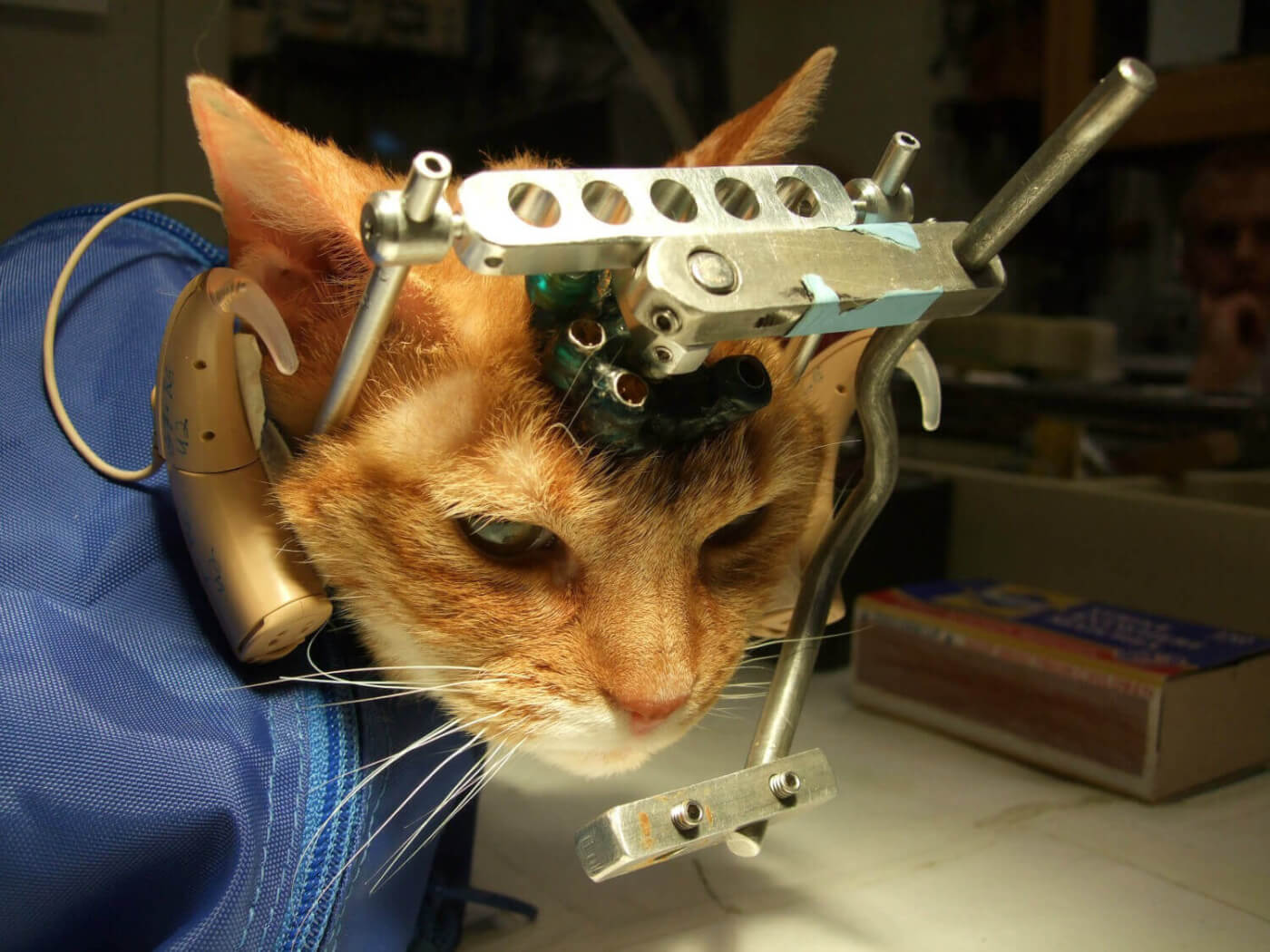 Electrodes were inserted into her brain, and electrical devices were implanted deep into her ears.
Electrodes were inserted into her brain, and electrical devices were implanted deep into her ears.
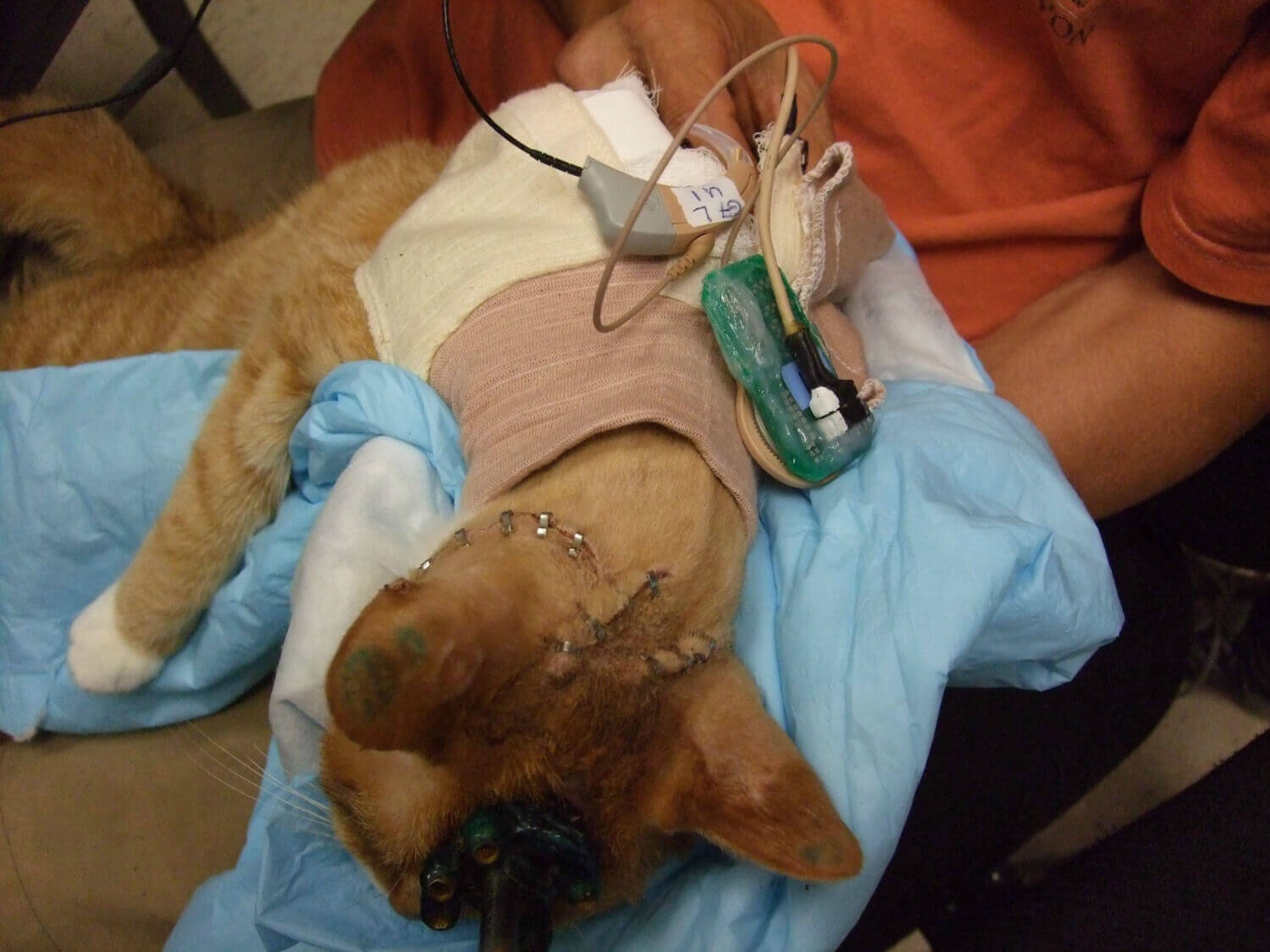
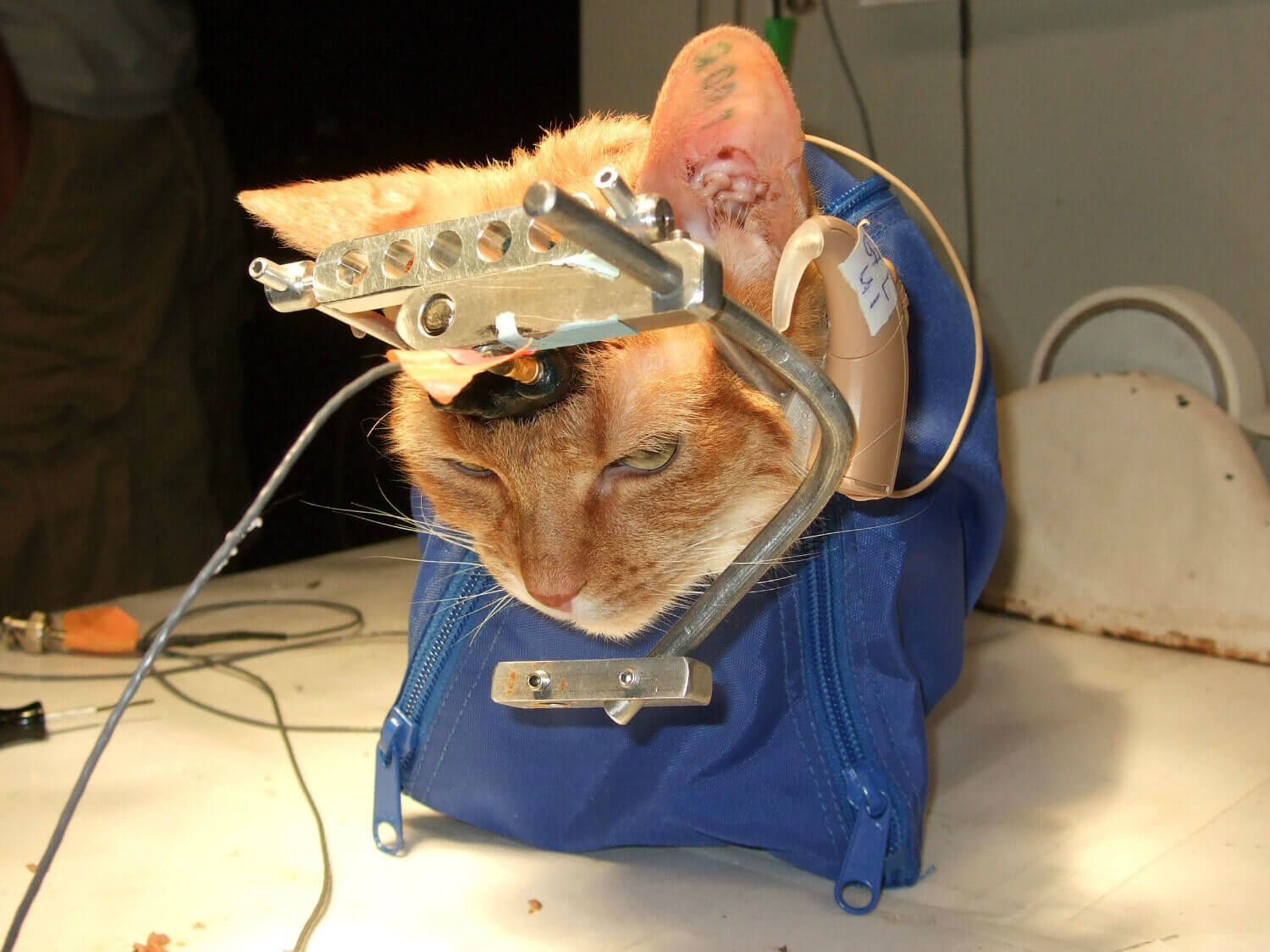 Wires protruded from the grotesque contraption on Double Trouble’s head.
Wires protruded from the grotesque contraption on Double Trouble’s head.
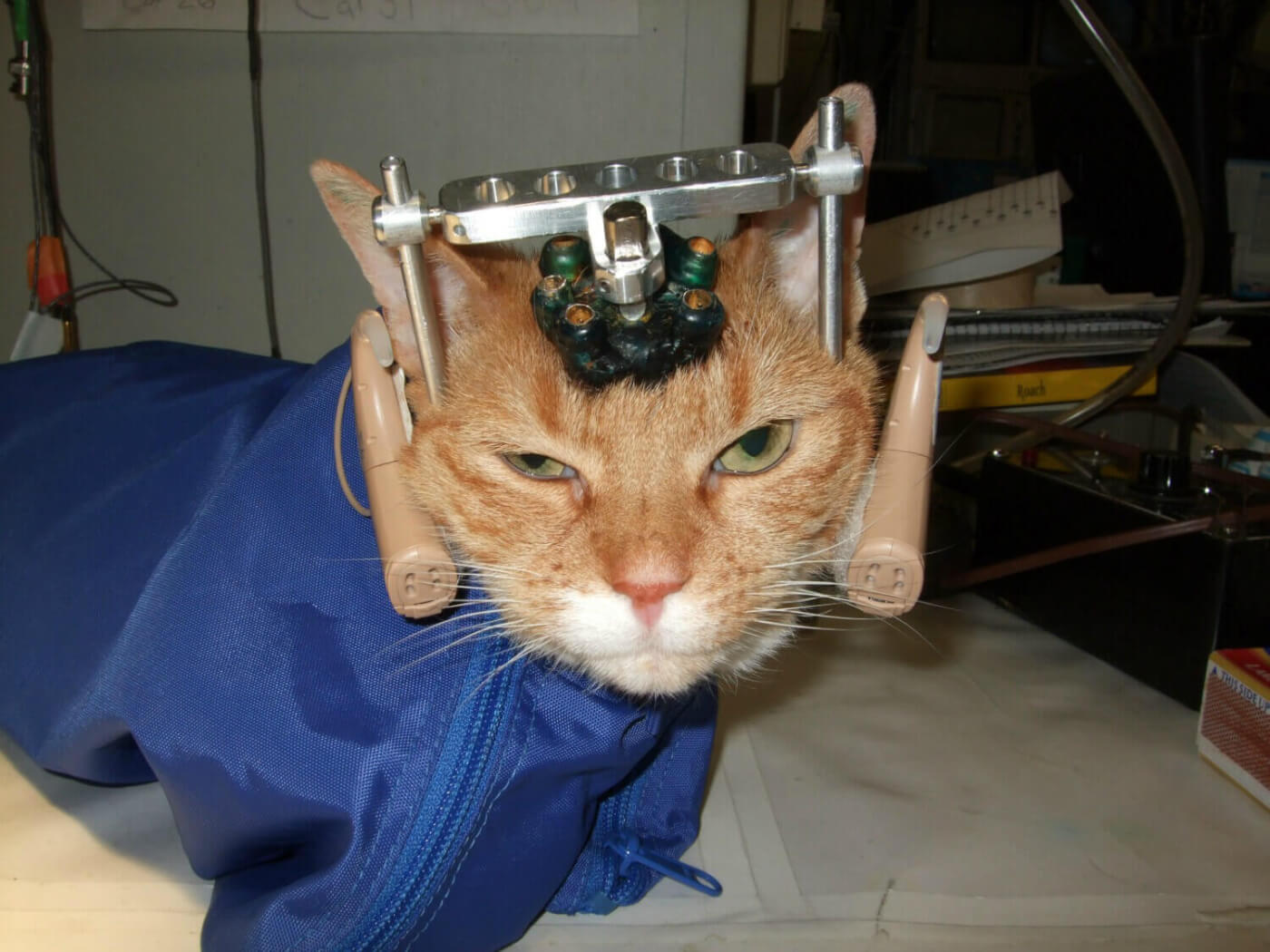
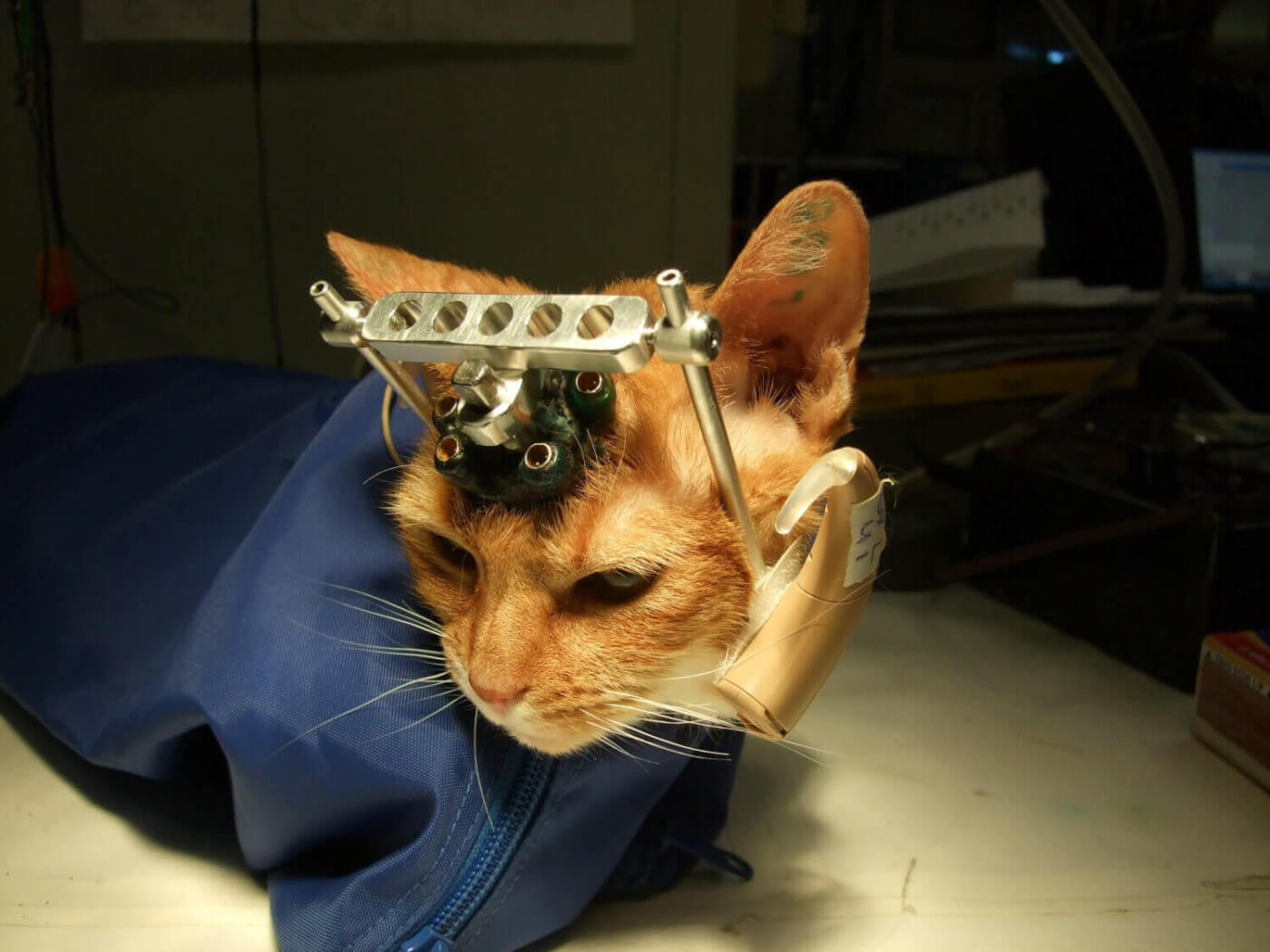
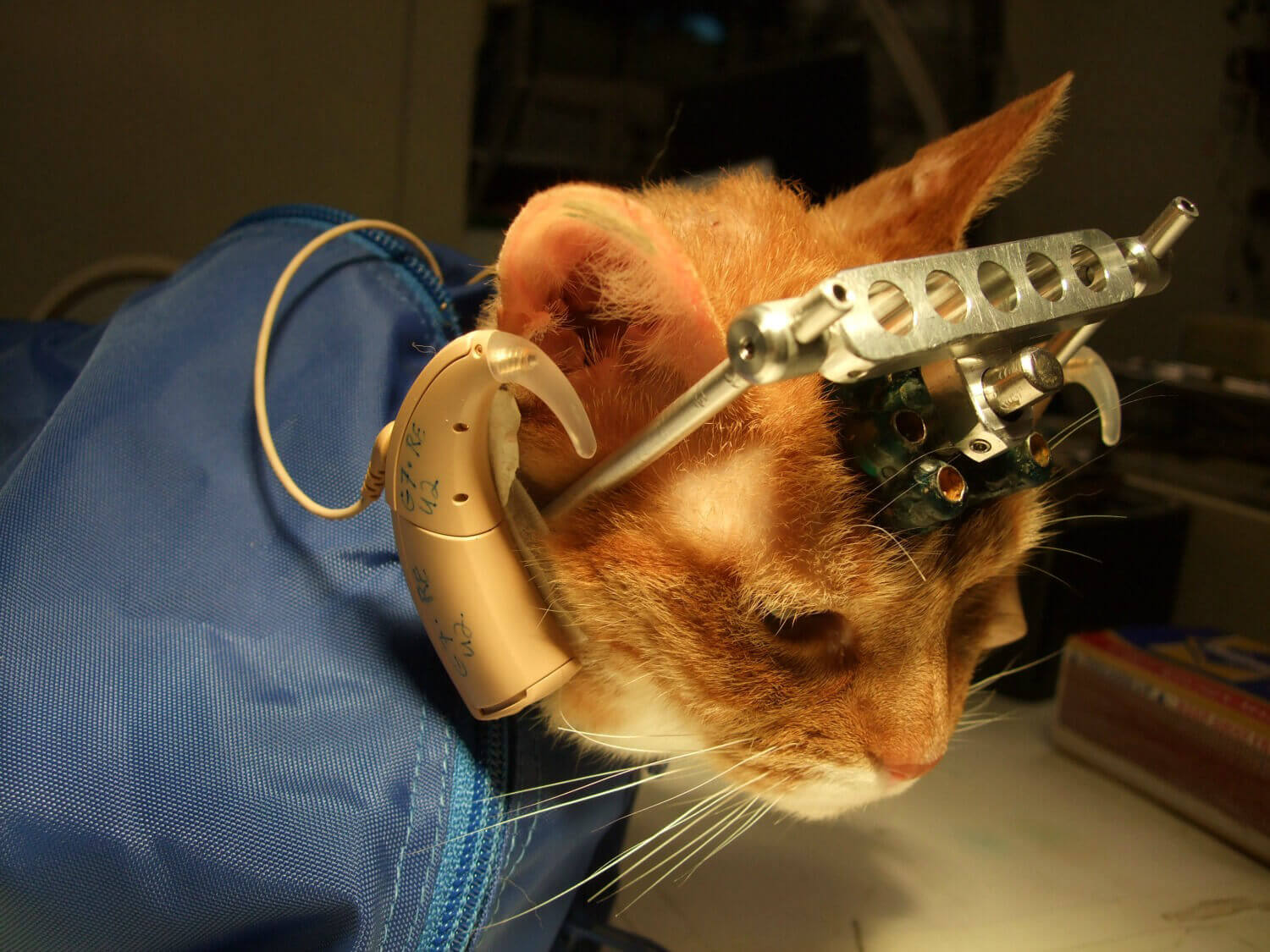 Double Trouble would be deprived of food for days at a time, and experimenters would hold a feeding tube in the metal device in front of her mouth to deliver morsels of food so that she would cooperate during experiments.
Double Trouble would be deprived of food for days at a time, and experimenters would hold a feeding tube in the metal device in front of her mouth to deliver morsels of food so that she would cooperate during experiments.
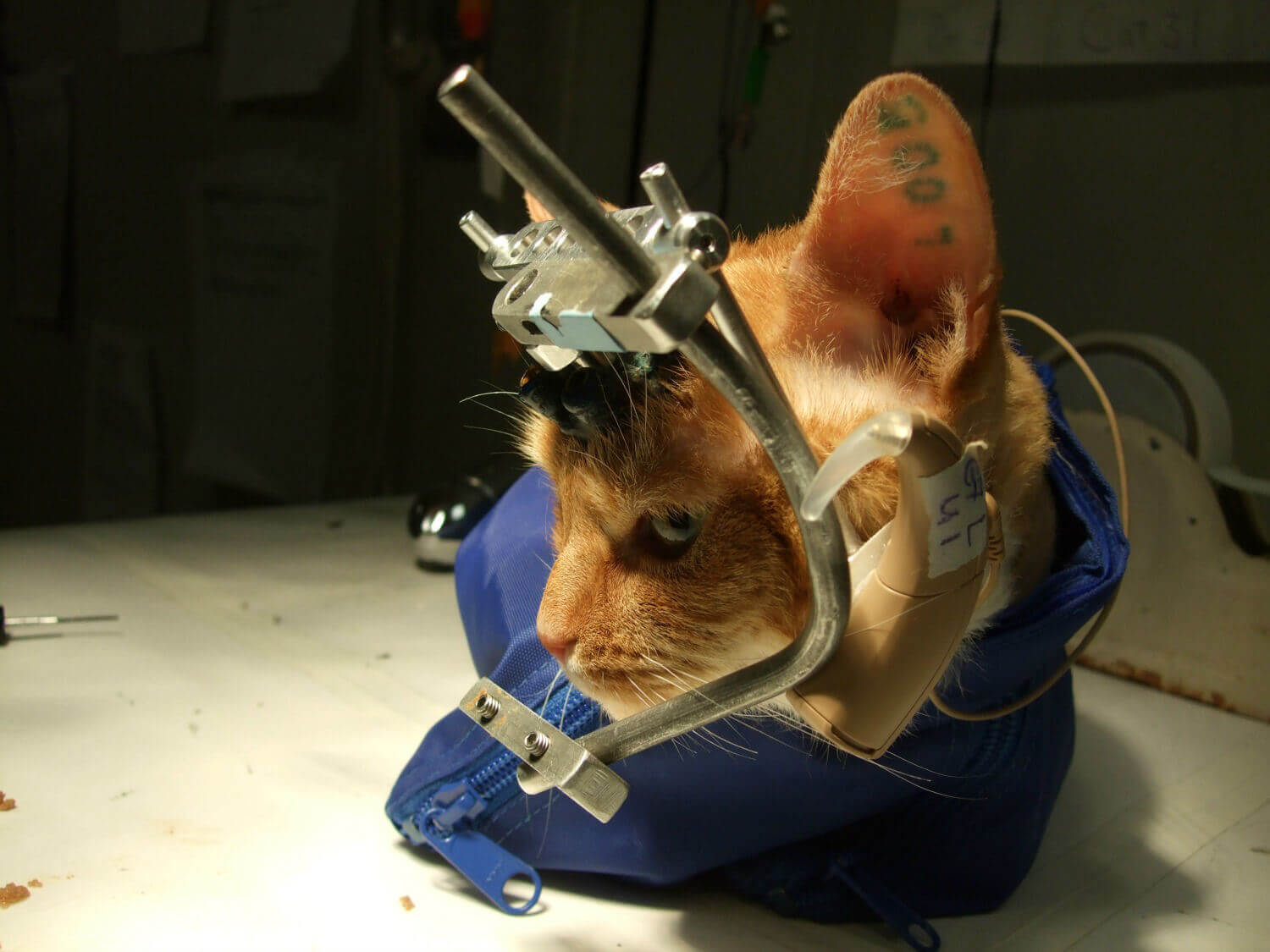
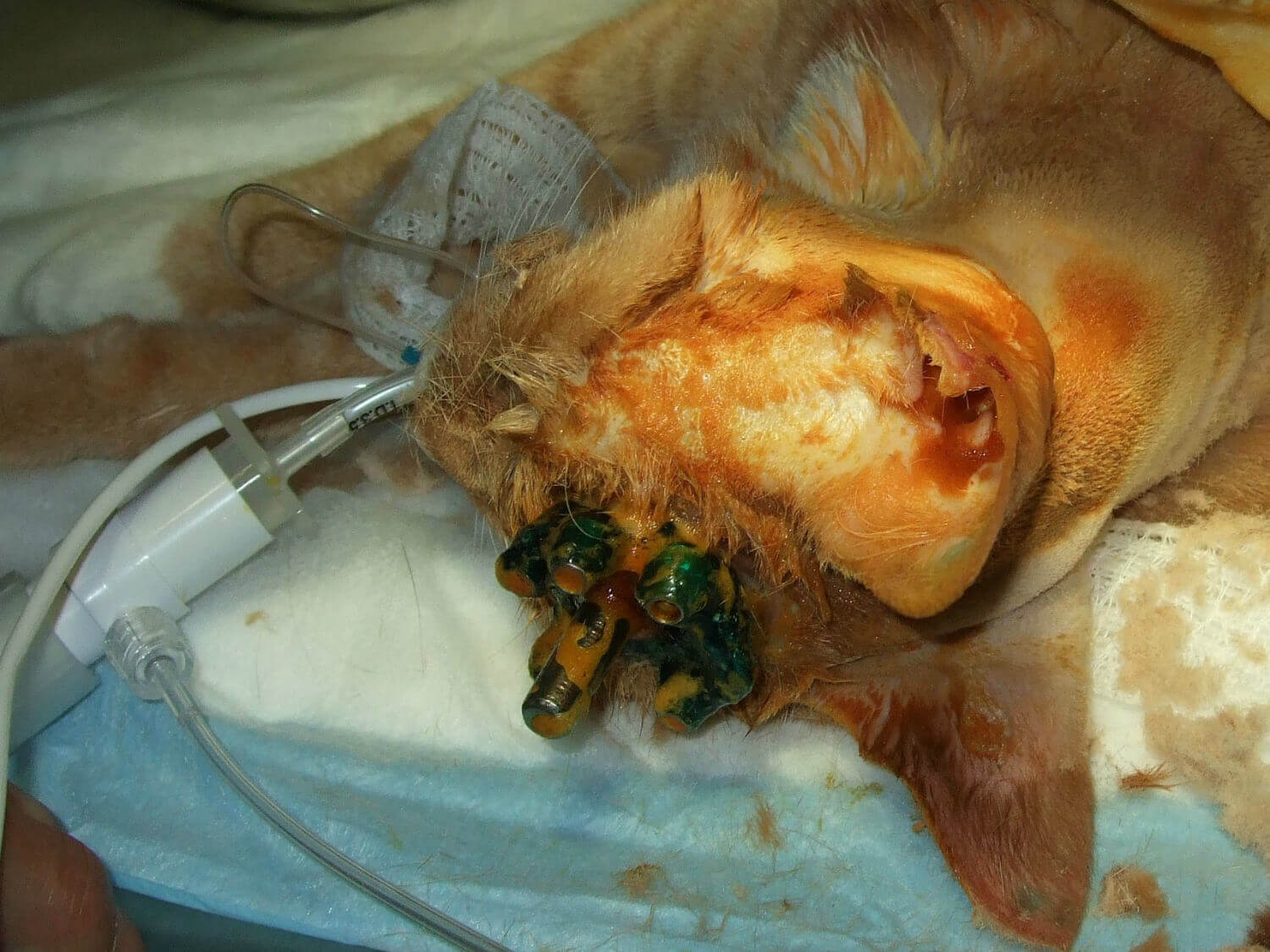 Double Trouble’s open, bloody head wound became a breeding ground for a serious bacterial infection.
Double Trouble’s open, bloody head wound became a breeding ground for a serious bacterial infection.
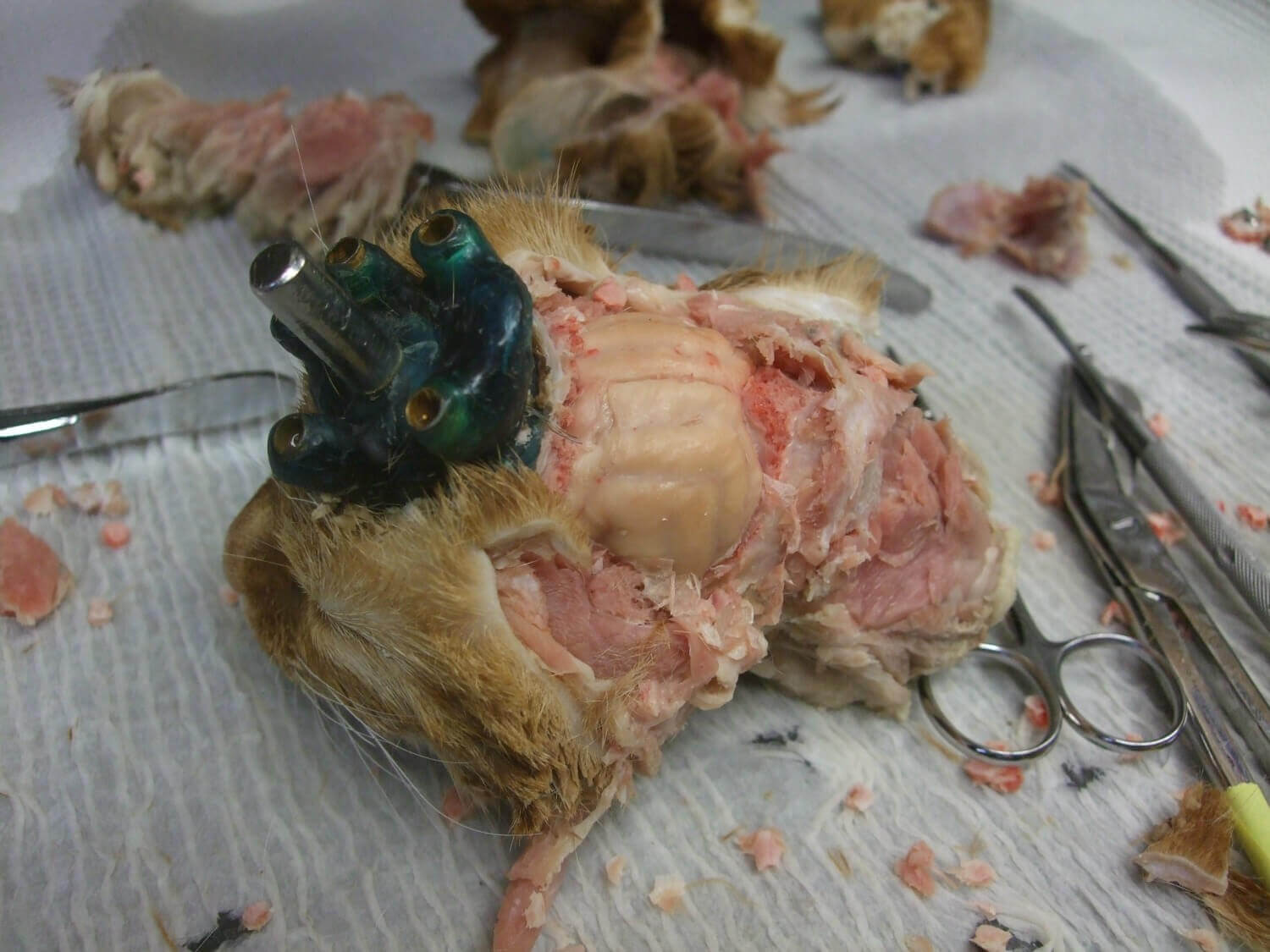 UW staff ultimately determined that their experiment with Double Trouble was a failure, and they killed and decapitated her so that they could examine her brain.
UW staff ultimately determined that their experiment with Double Trouble was a failure, and they killed and decapitated her so that they could examine her brain.


